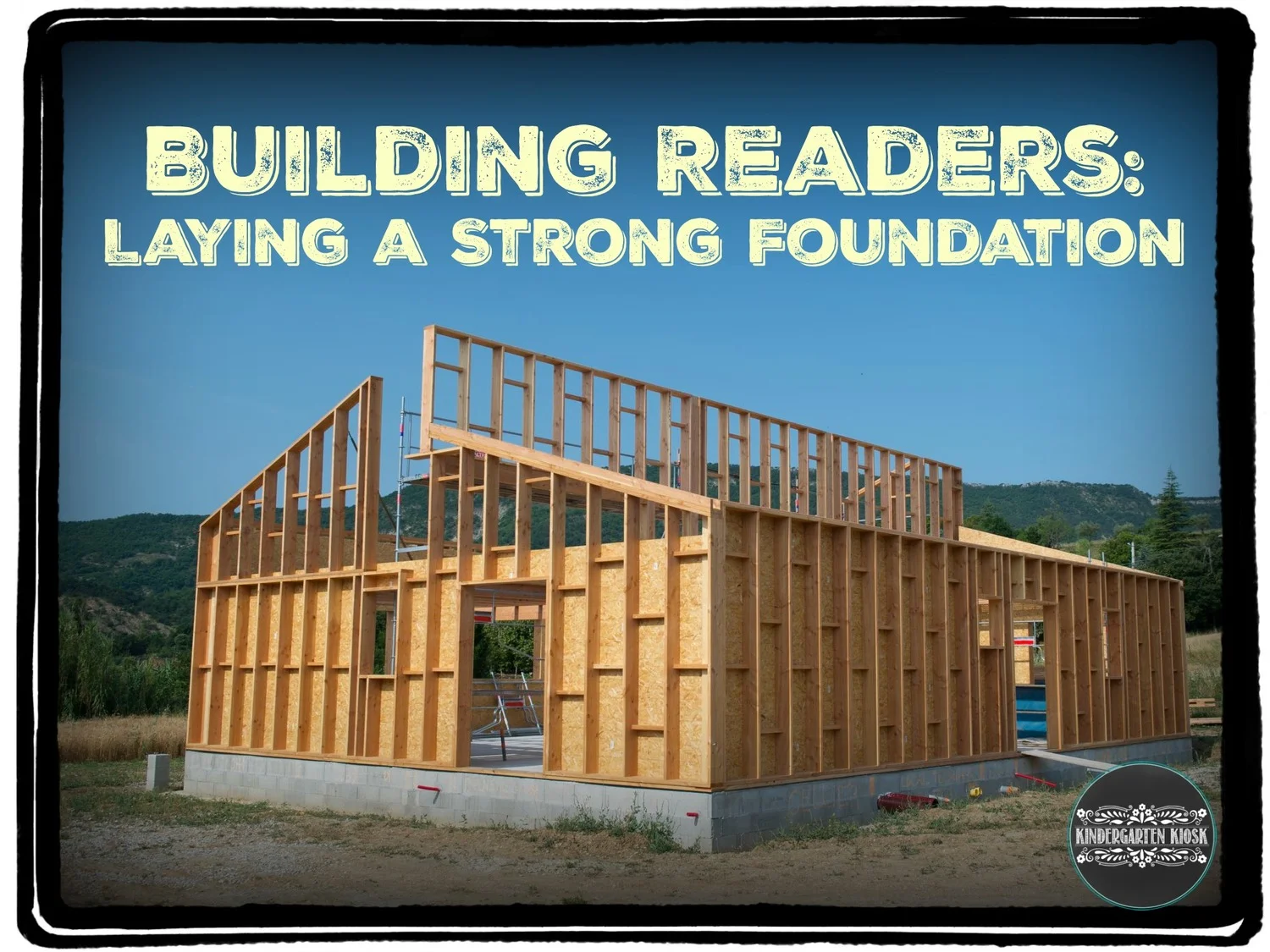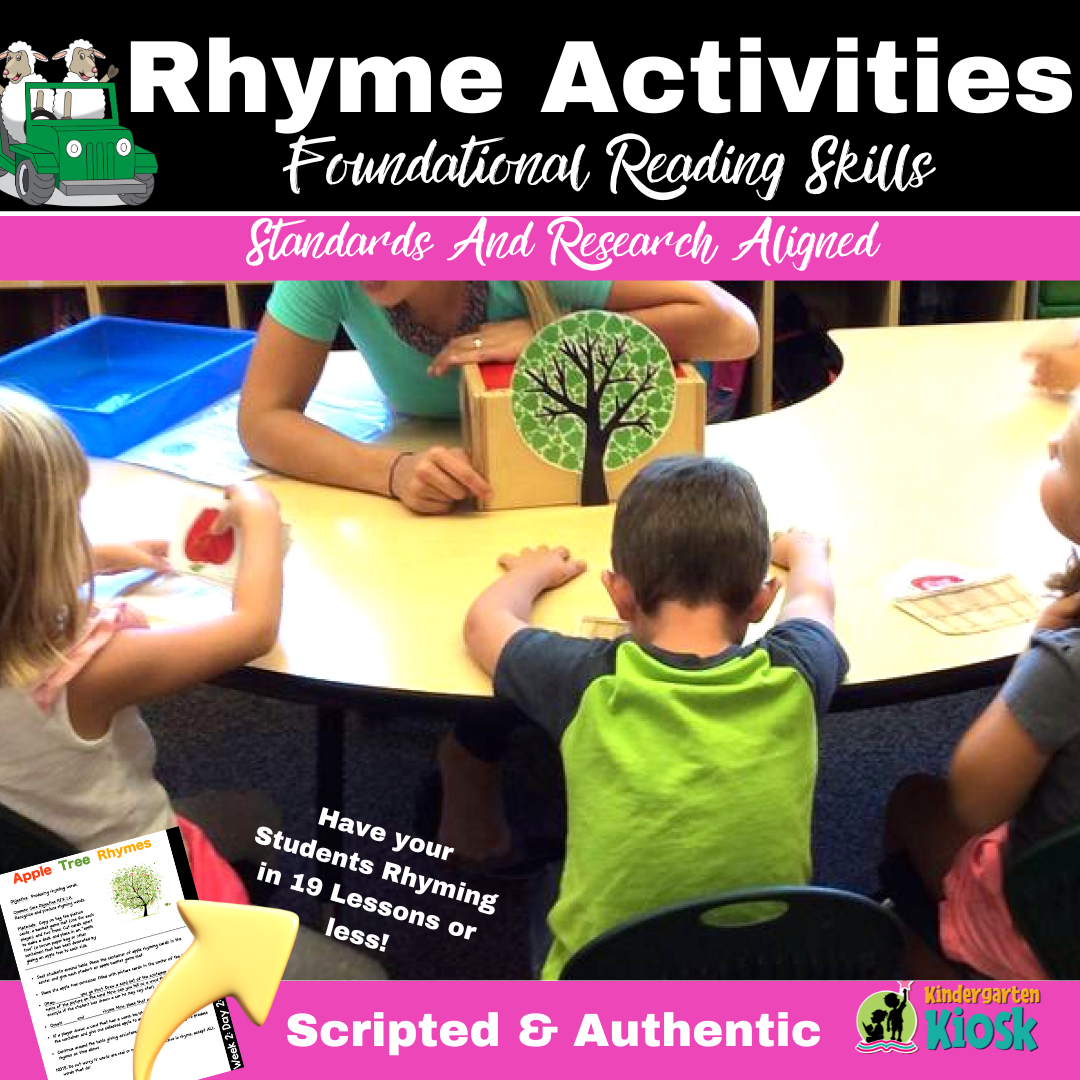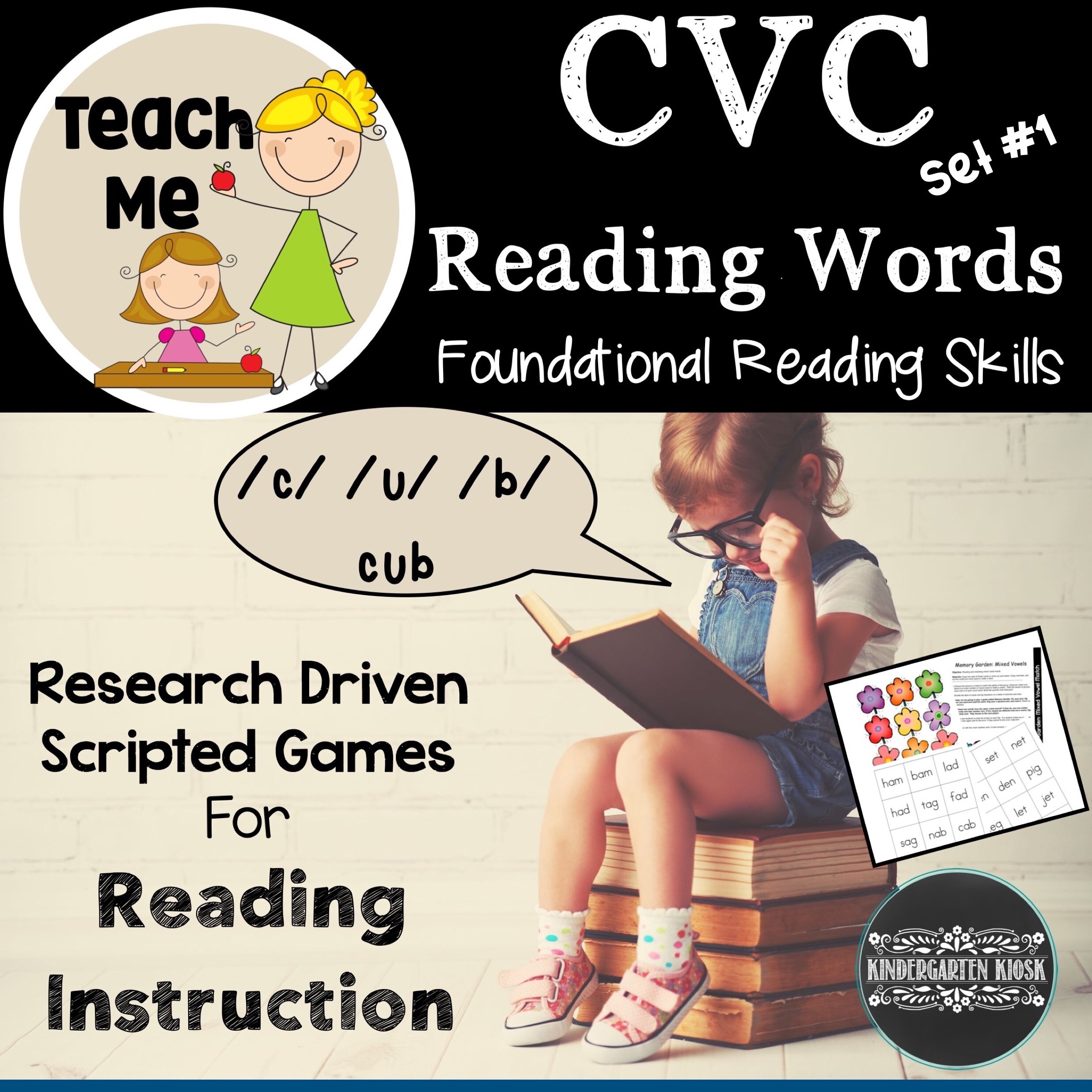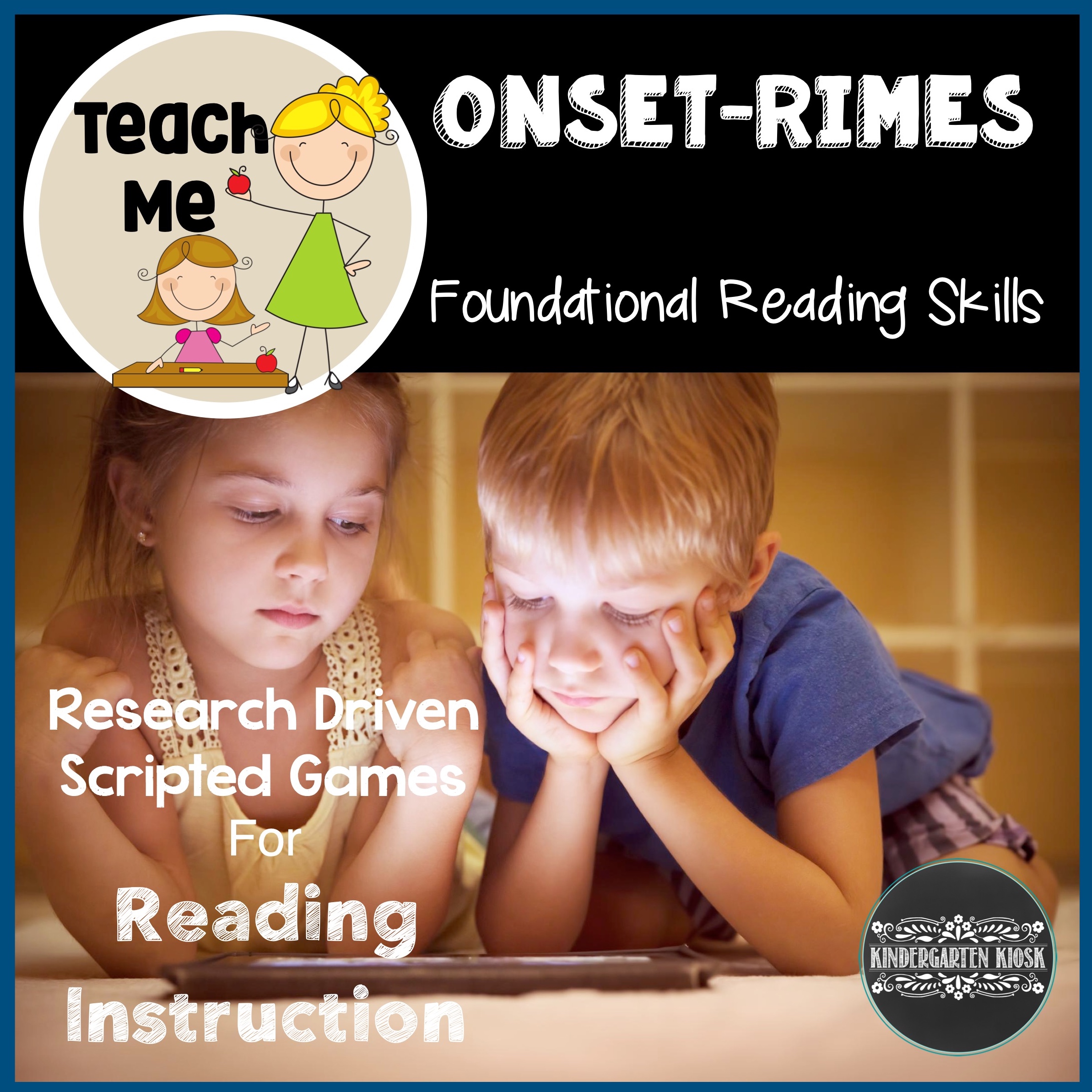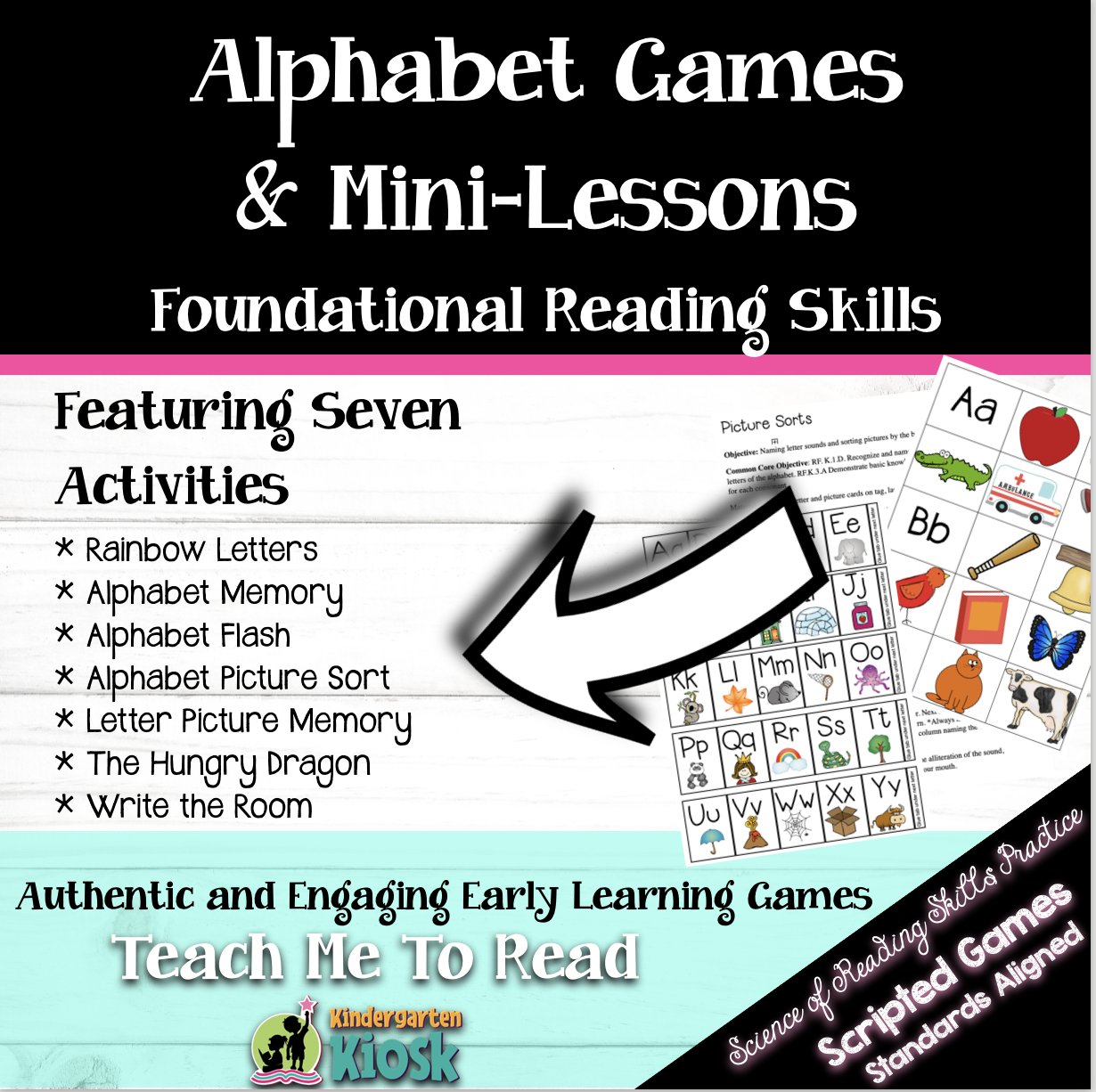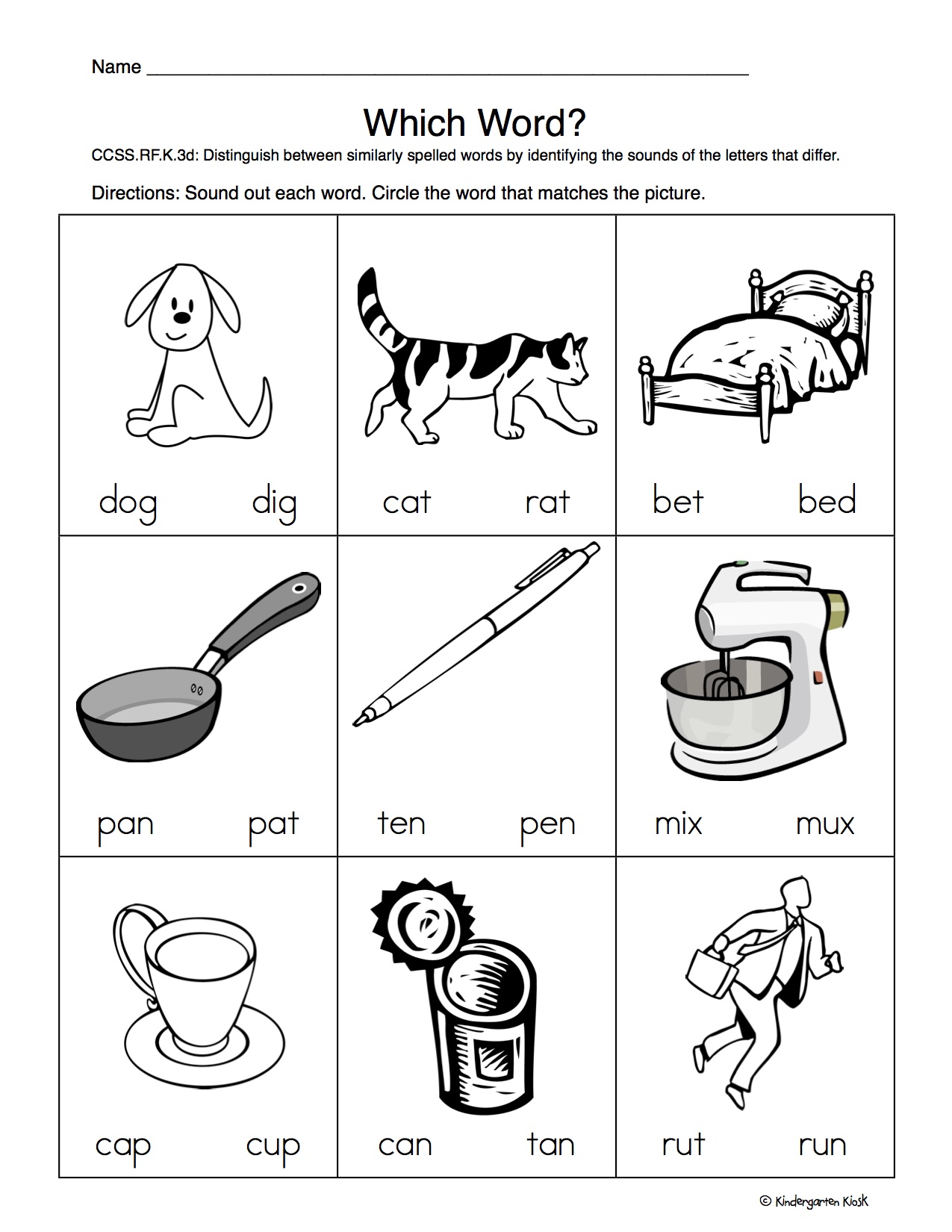Developing Emergent Readers
The kindergarten years are important years where solid foundations are laid - foundations on which future academic success are set, if you will, in foundational stone. During these early years it is of upmost importance to teach deep — not wide!
Kindergarten foundational standards must be over-taught; they must be practiced again and again and again to bring students to the level of Rapid Automatized Naming (RAN). The ability to rapidly name a letter, a sound, a beginning sound, a segmented word, sounds in a word, a rhyming word, etc. has proven to be a stronger predictor of future reading success than even the associations of how letters fit together to form words. RAN is “the seemingly simple task of naming a series of familiar items as quickly as possible and appears to invoke a microcosm of the later developing, more elaborated reading circuit.” (Denckla & Rudel 1976). Further studies on RAN have led researchers to determine that the ability to rapidly name and produce early reading concepts builds the working memory and eye function that connects orthography and phonology! (Journal Scientific Studies of Reading 2018).
“ “If you do not build a foundation properly, it can be dangerous and very expensive to repair”. Lillian Katz”
What does this mean for an early educator of kindergarten? This means less is more! We must make sure that our students are being “over-taught” the things that will lead them to achievement, rather than moving from those important skills too early, rushing into skills that belong to, and must stay in the 1st grade! Kindergartners need to have an instamatic mode of kindergarten core standards. Think of young learners as apprentices. Young apprentices work to learn something really well! They develop mastery; then and only then, they move that mastery to the connection of other skills and understandings.
RAN in short is automaticity! The ability to recall something without conscious thought. In reading — the ability to save brain power for comprehension —- the ability to focus on content. If such automaticity is achieved, students rapidly make the shift from learning to read to reading to learn without noticeable effort! Here are a few ways to develop RAN with your emergent readers.
Don’t overload a reader with too many concepts at once, thus, jumbling the pathways to the brain. When too much information is given, it becomes difficult to retain.
Teach skills using a timeline for reading success. The sequence of skills does matter, just as when building a house you pour the foundation before building the walls. If you are lucky, you have a curriculum to use as a guide. Follow it — it is there to help keep you focused on what needs to be taught.
Remember achieving automaticity is not automatic. Rather, it requires repeated practice time and time again. Skills can be practiced over and over again in fun and engaging ways. Even when the skill appears to be mastered, it must be reviewed time and time again in a spiraling fashion. If the learning is fun, kids thrive with repetition.
Take frustration out of the situation. For example if a student is struggling with naming 52 letters in one minute, practice rapid naming with things like common objects, colors, etc. This allows a child to feel success with automaticity —- getting an idea of exactly how automatic naming feels.
Teach skills using fun and games. Students do not respond well to worksheets or other kill and drill models. So, pull out the games and allow students to practice automatic naming in fun and creative ways. Turn those worksheets and flashcards into fun and creative games.
Guide students to make connections with beginning reading concepts. Make alphabet books, create poetry and rhyme, match words with the same beginning, middle, or ending sound — create a “Why we Match” book. Provide opportunities for manipulative play with early concept materials.
Know your grade-level standards. If it is not a standard, save it for the enrichment of advanced students as they become completely automatic with their own grade-level skills. Have you noticed drops in what a child could do at the end of kindergarten in relation to what they know at the beginning of 1st grade? This drop can be directly correlated to the lack of automaticity with the given skill in kindergarten. The child could produce the skill, but not automatically. He/she was still using up too much brain power to produce the results. For example, if a child can ride a bike at the end of kindergarten and lays it on the lawn until the beginning of 1st grade, will they be able to ride the bike as easily after the summer break? Yes! Because the skill of riding a bike is automatic — no brain power needed.
You will be amazed at how students thrive when automatic brain-power of kindergarten-level standards is the focus in a kindergarten classroom — enveloped in an environment where pushed-down curriculum is not welcomed, where students are allowed to learn at a development pace and truly apprenticed in early reading Kindergarten-Level skills.
Read or listen to more here:




